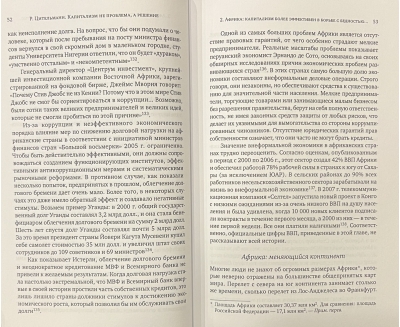Capitalism is not the problem, but the solution: A journey through the modern history of five continents
14.99 €
The only thing available 1
Often on various occasions we hear the stereotypical phrase: "The market has failed, we need more government intervention".
Historian and sociologist Rainer Zitelmann travels across continents and history and discovers the opposite: in countries where the state loses influence and people trust the market more, prosperity increases and poverty decreases.
He finds evidence for his thesis in Africa, Asia, Europe, North and South America, comparing developments in West and East Germany, North and South Korea, capitalist Chile and socialist Venezuela, and analyzes the extraordinary economic rise of China.
Over the past 250 years, capitalism has time and again solved the enormous problems that have vexed people throughout human history.
The greatest danger to our prosperity is that this lesson has been forgotten. A very relevant book in these times when the state is increasingly interfering in the lives of people and companies with planned economic methods.
In Chapter 10, the author offers his own version of the answer to an extremely important question: why do intellectuals dislike capitalism?
Historian and sociologist Rainer Zitelmann travels across continents and history and discovers the opposite: in countries where the state loses influence and people trust the market more, prosperity increases and poverty decreases.
He finds evidence for his thesis in Africa, Asia, Europe, North and South America, comparing developments in West and East Germany, North and South Korea, capitalist Chile and socialist Venezuela, and analyzes the extraordinary economic rise of China.
Over the past 250 years, capitalism has time and again solved the enormous problems that have vexed people throughout human history.
The greatest danger to our prosperity is that this lesson has been forgotten. A very relevant book in these times when the state is increasingly interfering in the lives of people and companies with planned economic methods.
In Chapter 10, the author offers his own version of the answer to an extremely important question: why do intellectuals dislike capitalism?
See also:
- All books by the publisher
- All books by the author













